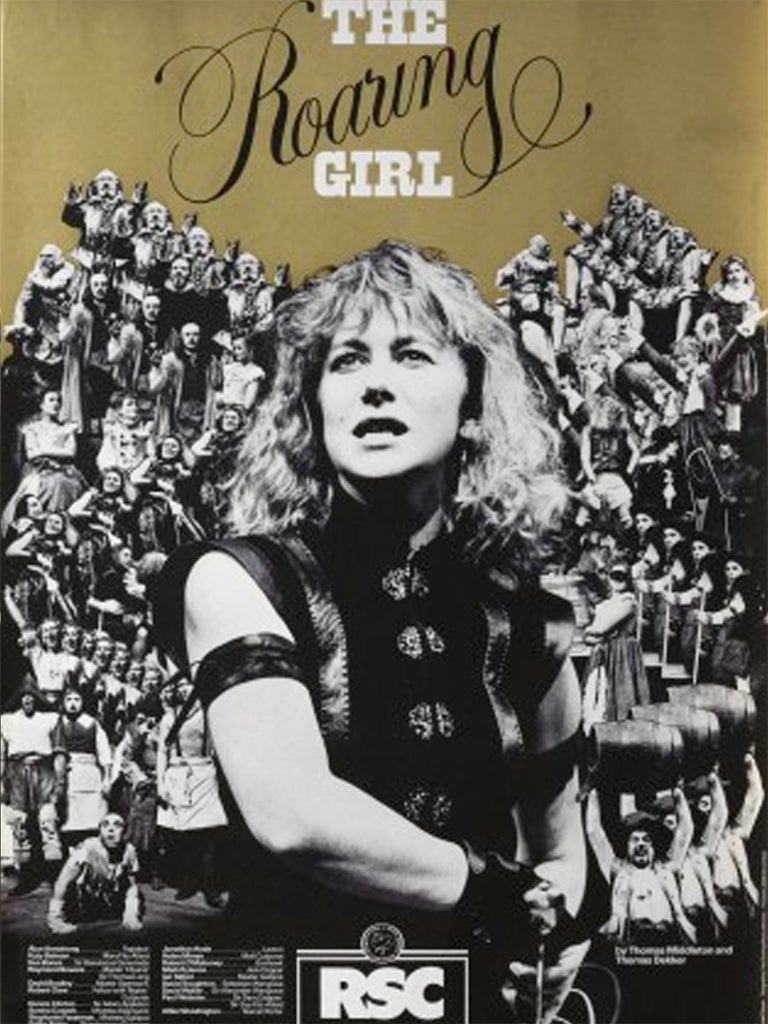Roaring girls: RSC to stage little-known plays with feisty female roles
The three Jacobean plays will provide more roles for actresses

Your support helps us to tell the story
From reproductive rights to climate change to Big Tech, The Independent is on the ground when the story is developing. Whether it's investigating the financials of Elon Musk's pro-Trump PAC or producing our latest documentary, 'The A Word', which shines a light on the American women fighting for reproductive rights, we know how important it is to parse out the facts from the messaging.
At such a critical moment in US history, we need reporters on the ground. Your donation allows us to keep sending journalists to speak to both sides of the story.
The Independent is trusted by Americans across the entire political spectrum. And unlike many other quality news outlets, we choose not to lock Americans out of our reporting and analysis with paywalls. We believe quality journalism should be available to everyone, paid for by those who can afford it.
Your support makes all the difference.The Royal Shakespeare Company is to put on three Jacobean plays with the “some of the greatest parts ever written for women” to raise the question of gender inequality on the British stage and in wider society.
This came as one senior member of the creative team said the British stage did not provide “sufficient” roles for actresses.
Erica Whyman, the deputy artistic director of the RSC, will oversee a season dubbed “Roaring Girls” at the RSC’s Swan Theatre with three rarely performed plays.
She said: “There are real issues that rise out of these plays that are 400 years old, yet we’re still asking the same questions now.”
She added: “Ask any actress of a certain age and it gets harder even though they may have had a glittering career, it still doesn’t provide sufficient parts for great actresses.”
The Roaring Girl by Thomas Middleton and Thomas Dekker follows “fearless and feisty” Moll Cutpurse who “unmans all who cross her path” and was last played at the RSC by Helen Mirren in 1983.
The other plays comprise Arden of Faversham, published anonymously in 1592 which contains the largest role for a woman in all Elizabethan drama and is believed to contain some writing by Shakespeare, and The White Devil by John Webster.
Ms Whyman said: “It is a celebration and a provocation. They are fantastic parts for women, largely though they are about remarkable women in men’s words.
“We are not going to solve the problems of gender inequality on the stage or in the world, but we are intent on asking some questions about both.”
RSC artistic director Gregory Doran said the relationship with the Barbican – resurrected after an acrimonious split over a decade ago – has now turned into a three-year partnership, although he would not commit to it becoming the RSC’s permanent London base after that.
The RSC also announced Antony Sher would play Falstaff in Henry IV parts I and II, and The Two Gentlemen of Verona will be staged at the theatre for the first time in 45 years.
The company also revealed a new initiative dubbed Shakespeare Nation, which will bring its production of A Midsummer Night’s Dream to all 12 nations and regions of the UK in 2016.
In every location, Bottom and the rude mechanicals will be played by a local amateur group and Titania’s fairy train by local schoolchildren.
Join our commenting forum
Join thought-provoking conversations, follow other Independent readers and see their replies
Comments